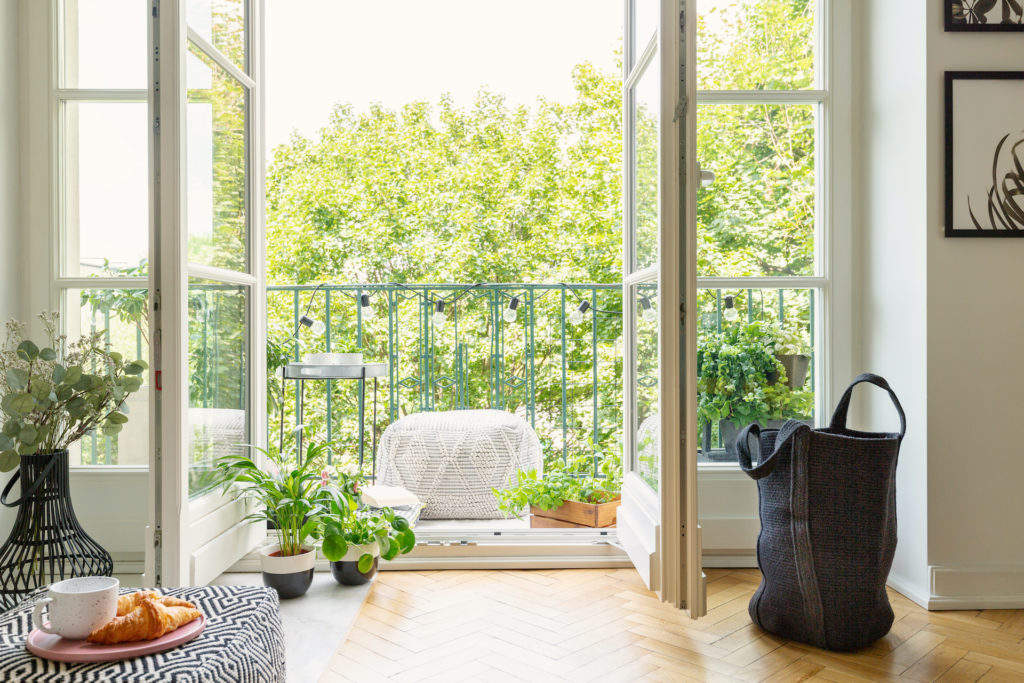
Do you have an extra room in your apartment, or do you need to make some extra cash? Opening up your apartment as an Airbnb could provide you with more money to pay bills or go on a vacation. This simple yet practical way to earn extra money could be your solution to afford some of those extras in life.
What is Airbnb?
Airbnb is an online hub where you can list your space for others to stay in or for rent, whether it be for a night or a month. At Airbnb, you have more flexibility and control in who rents your space, when you rent your space, and what amenities your guests can use. Airbnb is a good option when you need a quick and easy way to rent out your space for the short or long term. In order to rent an Airbnb, you must be 18 years or older, so any guest you rent your apartment to must meet the age minimum.
Can I Airbnb my apartment?
You’re allowed to rent out your apartment as an Airbnb in some cases, but you’ll have to make preparations first. Sharing your space is a great way to meet new people, make extra money, and expand your interests. However, there are several factors to consider before you list your apartment on Airbnb, such as whether your landlord approves and if your lease allows it.
How To Rent Your Apartment Out as an Airbnb Apartment
If you’re ready to rent out your apartment through Airbnb, note that there are a few important steps to consider. Taking these steps will ensure that you follow the local laws, stay within the tenets of your lease, and keep your landlord informed along the way.
1. Check Your Local Laws
Prior to renting out your apartment as an Airbnb, it’s important to protect yourself by knowing the laws, restrictions, and responsibilities that may be in place by your city, your property management company, or your landlord. Before anything else, you’ll likely need to find out if turning that extra room in your apartment into a rental property is legal.
Some local jurisdictions restrict or prohibit short-term rental hosting.
- New York City, for example, has restrictions on apartment buildings stating that they must be used for permanent residential housing only. This would eliminate the possibility of legally renting out space in your apartment through Airbnb.
- In San Francisco, anyone wishing to do short-term rentals must speak with both the Treasurer and Tax Collector offices and the City of San Francisco’s Office of Short-Term Rentals prior to opening their doors as an Airbnb.
Other jurisdictions require the host to register their property for the purpose of tax collection or regulation. Check out the Airbnb website for more information about the legal requirements for major cities in the United States. If you’re still unsure about the local laws or restrictions in your area, reach out to your local governing center for answers.
2. Know Your Lease
Take the time to read the fine print on your lease or rental agreement before registering your property as an Airbnb. You need to be completely sure you’re allowed to rent out your space on a short-term basis. If you violate the terms and conditions of your lease agreement, you may get evicted by your landlord. Make sure there aren’t any limitations on subletting your apartment or on the number of nights a guest can stay. You may also need to receive written approval prior to renting out your apartment through Airbnb.
3. Talk To Your Landlord
Airbnb strongly suggests you speak with your landlord prior to accommodating guests, even if your lease explicitly states that this practice is allowed. It’s best to inform your landlord of your intentions as well as work out any details prior to listing on Airbnb. Having your landlord on board will not only protect your lease agreement, but it will also make the process a lot smoother.
If renting out space is not allowed in your lease, your landlord or leasing office may still be open to the idea. Create a clear and concise plan for things like how often you plan to rent and how many guests you’re willing to allow so that you can approach your landlord with a solid plan. In addition, work out which amenities you’ll let guests use and which are off-limits.
If your landlord needs some convincing to allow you to rent your apartment as an Airbnb, you can always offer to pay for additional liability insurance. No matter what route you take, make sure you’ve communicated with your landlord completely.
4. Start Renting
After you’ve read through your lease and gotten permission from your landlord or leasing office, it’s time to get started. You’ll want to start by registering your property. First, go to the Airbnb website and click on the sign-up option.
Once you’ve created your free account, you’ll provide information about your apartment. The more information you provide about your rental space, the better. Be precise and accurate with information such as whether renters can cancel or request money back if the property doesn’t meet their satisfaction.
Next, name your listing. Use descriptive words that will draw attention, and add high-quality images to showcase your property. Create your rental rules and requirements, which should include policies on noise, pets, parking, and any additional fees. After that, set your calendar and price. Rent your room as little or as often as you would like for a price you deem fair and worthwhile. You can either set your price on your own or use the Airbnb pricing tool to help you decide how much you should charge for your space.
If you’re in the market for an apartment you can Airbnb, search thousands of places on Zumper. Remember to speak to your new landlord and make sure you follow all local laws.



